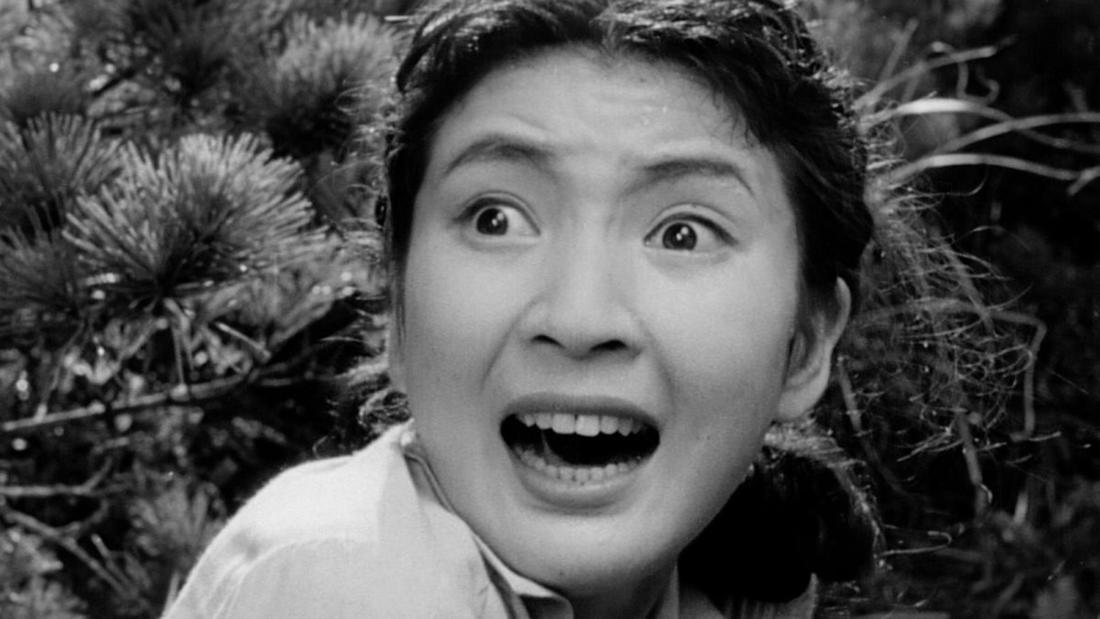
Gene Siskel Film Center Chicago, IL
Saira Chambers
Executive Director, Japanese Cultural Center
andYuki Miyamoto
DePaul Humanities Center Director
andRobert K. Elder
President and CEO of the Outrider Foundation
Godzilla (Gojira)— It’s the end of the world as we know it... and we could use some help in feeling fine (Part I)
Program Description
Series: It’s the end of the world as we know it... and, if we’re being honest, we could use some help in feeling fine. From pandemics to nuclear war, from planet-pulverizing meteors to a city-smashing monster, these films explore all the ways we’re risking destruction. This series is curated in partnership with the Bulletin of the Atomic Scientists, keepers of the Doomsday Clock. Join us as we discuss the end times—and how we can avoid them.
The original Godzilla (Gojira) is followed by a discussion with Saira Chambers, Japanese Cultural Center director, Yuki Miyamoto, DePaul Humanities Center director, Michael Phillips, Chicago Tribune film critic, and Robert K. Elder, president and CEO of the Outrider Foundation.
Presented At
Gene Siskel Film Center Chicago, IL
Film Synopsis
American nuclear weapons testing results in the creation of a seemingly unstoppable dinosaur-like beast.
Celebrating its 70th anniversary, Godzilla is the roaring granddaddy of all monster movies and a remarkably humane and melancholy drama, made in Japan at a time when the country was reeling from nuclear attack and H-bomb testing in the Pacific. Its rampaging radioactive beast, the poignant embodiment of an entire population’s fears, became a beloved international icon of destruction, spawning almost 30 sequels.
About the Speaker
Saira is a curator, educator, producer, and curriculum developer. She has worked with and maintained strong partnerships with museums and community organizations throughout Chicagoland and internationally that explore Japanese art and history.. With an emphasis on community-driven and innovative exhibition models and programs, her work explores the art, history, and culture of Japan globally to bridge cultural competence and cross-cultural perspectives.
Professor Miyamoto received her Ph.D. from the University of Chicago Divinity School in 2003 and joined DePaul as a visiting assistant professor the same year. In 2006, she became an assistant professor, was promoted to associate professor in 2012, and to full professor in 2021. She teaches nuclear ethics and environmental ethics in the Department of Religious Studies at DePaul. Her work centers on nuclear discourse, and includes the books, Beyond the Mushroom Cloud (Fordham University Press, 2011), and Naze genbaku ga aku dewa nainoka (Narrative Divergence in Nuclear Discourse between the US and Japan) (Iwanami shoten, 2020), in addition to several articles (including, “In the Light of Hiroshima” and “Gendered Bodies in Tokusatsu”). The uncanny commonalities of systemic violence manifested after 2011’s Fukushima nuclear accident and Minamata’s environmental destruction half a century earlier urged Miyamoto to examine environmental ethics and praxis in Minamata, culminating in her most recent monograph, A World Otherwise: Environmental Praxis in Minamata (Lexington Books, 2021). Her current academic work examines discriminatory treatments in Japan against the irradiated bodies of sufferers from Hiroshima, Nagasaki, and Fukushima.
Robert K. Elder is the author or editor of 20+ books, and his work has appeared in The New York Times, The Chicago Tribune, The Paris Review, The Los Angeles Times, The Boston Globe, Salon.com, and many other publications. He previously served as the Chief Digital Officer at the Bulletin of the Atomic Scientists and the Executive Director of Digital Product Development & Innovation at Crain Communications.